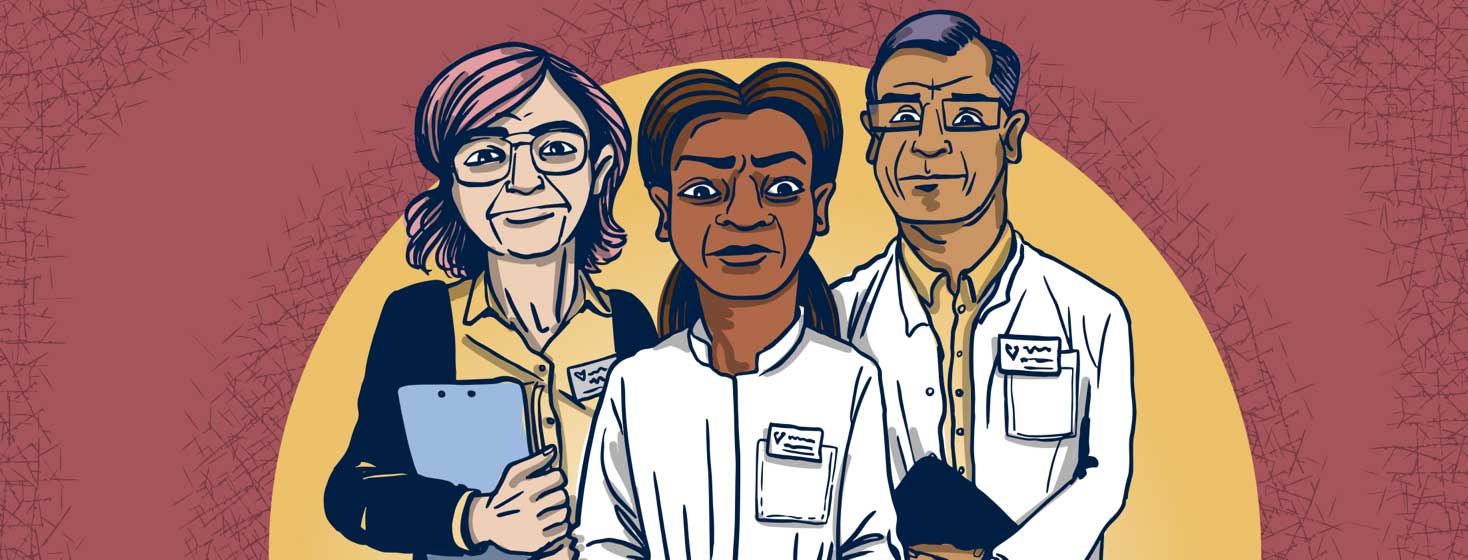When I Found Out I Was Immune-Compromised
When I found out I was immune-compromised, I was nine years old. I remember my mother bringing me to my doctor's appointment as she always did. Visiting my doctor regularly was normal to me. Now that I’m older, I realize that the vast majority of people don’t attend a doctor's appointment as regularly as I do.
Since I’m HIV positive, my treatment requires me to have my blood drawn every three to four-month because my HIV viral load and CD4 cells are monitored, which I wasn’t aware of at the age of nine.
The doctors and my mother were anxious
I recall this hospital visit feeling unusual; I can sense my mother was experiencing discomfort and anxiety while waiting for my name to be called to see my doctor. It felt like I was waiting forever for them to call my name; I didn’t think too deeply about it as I usually did as a child because I knew I wasn’t supposed to get involved in adults’ business.
Eventually, the doctor came out and invited my mother into the room to chat while I continued to wait to be invited into the room too. When they finally asked me to come in, I was relieved; I went to sit down with the doctor in the room, and then soon after, more doctors came in.
I was left out of the conversation
There had to be four to five doctors in the room, which was very unusual because I had never been in a room with so many doctors before. Everyone in the room was very anxious, and I can sense that we would discuss something that they felt uncomfortable talking about with me.
I was confused and suspicious, mainly because this is the first time my mother wasn’t in the room with me. I could sense that my mother didn’t want to be in the room because the doctors inside and outside of the room were having a separate conversation with my mother, while I was left out of the conversation. When all of this was happening in my face, I sat and waited until they were ready to talk to me.
I was told that I was HIV positive
My mother finally decided to be in the room, and she was standing behind the doctors while some were comforting her. I was at one end of the table while everyone else was crowded by the other end of the table by the door. I honestly don’t remember how they started the conversation; all I remember is them finishing the conversation with “You’re HIV positive,” then the room went completely silent.
What type of response were they expecting?
At this moment, I knew I needed to relieve the tension in the room because everyone's body language indicated that my life as I knew it was over, and this information was going to bring a new reality to my life, a much more difficult reality.
To relieve the tension, I decided to say "okay" since they were waiting for my response. I knew, based on their body language, that they were expecting me to respond negatively, so I made sure to give a nonchalant response. I could tell that everyone was relieved when all I had to say was "okay." I became curious to learn why my HIV diagnosis was frightening to them, but I knew it wasn't the day to ask, and I was certain that this wasn't going to be the last conversation I would have about my status. It was only the beginning.
I was always HIV positive
I didn’t feel frightened because I was always HIV positive; the only difference was that I didn't know about it, and now I knew I was immune-compromised for the last nine years of my life, and I was going to continue to be throughout my entire life. I was glad to know why I was taking my medicine finally because I would ask my mother often. My medication helps me take care of my immune system so that I can live a long life; that reality didn’t bother me because it had always been my reality.
Control of my HIV narrative
The reality that did bother me was how others would react to my status. I knew it would result in me being in a continuous battle with myself and others about how I felt and how others expected me to think about my HIV status.
I feared living in a reality that would invalidate my feelings toward my HIV status because our culture has already defined what it means to be HIV positive.
Was I ever going to be in control of my HIV narrative, or was I subjected to our cultural narrative? I was doubtful, but I knew only time would tell.

Join the conversation